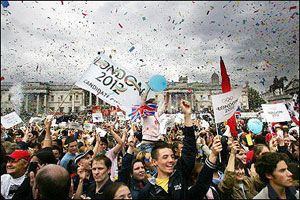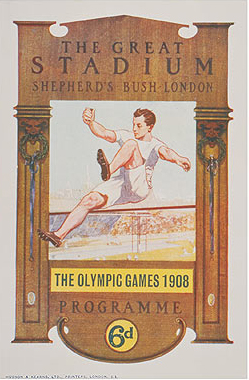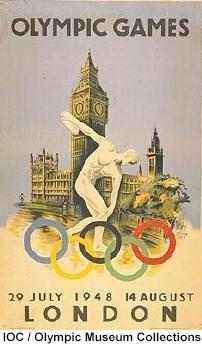2005年7月6日晚,持续了一年之久的2012年奥运会主办权花落谁家的悬念,终于揭晓。经过四轮的激烈争夺,伦敦以54:50票的微弱优势击败了呼声最高的巴黎,获得第30届夏季奥林匹克运动会的举办权,伦敦也因此成为历史上第一个三次获得奥运举办权的城市。然而在申办前期,伦敦的表现并不被看好,连国际奥委会最初对他们的评价也不高。那么伦敦究竟如何从落后的局面中脱颖而出,打败强大对手赢得最终胜利呢?
 |
|
Jubilation in Trafalgar Square after the result was announced.
|
The path to London's Olympic victory had many twists and turns but perhaps none so bizarre as the turn performed by the prime minister's wife over tea and biscuits at Downing Street.
When a group of foreign journalists was invited to No 10 in February as part of Britain's lobbying effort, Cherie Blair was anxious to show that she would do anything to improve London's chances.
Her ingratiating performance was only a small part of the extensive 26 million pounds (US$45 million) lobbying campaign led by Lord Sebastian Coe, the former Tory member of parliament (MP) and Olympic gold medallist, which transformed London's bid from an also-ran into a serious contender.
While Paris remained the favourite until the final vote by the International Olympic Committee (IOC) in Singapore on Wednesday, the London bid capitalized on French complacency.
Coe's strenuous efforts flying across the world to promote the bid, his contacts with key figures in the Olympic movement and clever public relations had put London back in the race. London generated twice as much publicity in the foreign press as the other four cities put together.
Victory was sealed in an intense 48 hours of lobbying and horse-trading leading up to the vote, including a charm offensive by Tony Blair and a remarkably uplifting, multicultural video played in the final presentation.
Coe, who had won Olympic gold in the 1500 metres in both 1980 and 1984, threw himself into the new role as bid chairman.
The strategy was simple: he had to convince a majority of the 116 members of the IOC to give him their votes.
Coe was already on first name terms with many, having served on several Olympic
 |
| the 1908 London Olympics |
committees.
New rules introduced after the 1999 Salt Lake City bribery scandal stopped IOC members from visiting bid cities outside of official trips. So Coe had to go to them. He was to fly more than 360,000 kilometres visiting sports events and associations around the world.
His team wooed foreign journalists to keep London at the forefront of IOC members' minds. Cherie Blair was appointed as an ambassador.
Coe knew the politics of the Olympic movement. He made a point of flying out to see Joao Havelange, IOC member for Brazil. As the retired president of FIFA, football's ruling body, Havelange held great sway over the Latin American "brotherhood" whose votes could prove crucial.
Samaranch: Coe's ace
Coe's ace was his longstanding relationship with Juan Antonio Samaranch, the "godfather" of the modern Olympics, who has maintained an honorary role in the IOC despite standing down as president in 2001. Samaranch still wields considerable influence over the IOC members, 80 of whom were appointed by him during a reign in which back room deals were common.
His friendship with Coe dates back to 1980 when the runner defied Margaret Thatcher's call for a boycott of the Moscow Olympics. Samaranch was Spanish ambassador to the Soviet Union and had just been elected IOC president.
Samaranch was, naturally, backing Madrid's bid which was led by his son, Juan Antonio Jr. But, like London, Madrid feared the support for Paris was too strong.
A week before the final vote in Singapore, Coe met Samaranch at the Mediterranean Games in Almeria and the two men are believed to have made a deal on tactics.
Under the informal agreement, whichever city was eliminated first in the IOC vote would urge its supporters to switch to the other. It was a classic piece of Olympic horse-trading no different from deals done between other contenders.
Crucial lobbying
If the finishing tape was in sight, there was still one more exhausting effort to be made to ensure victory, however.
It was past midnight when the last of the night's visitors emerged from Tony Blair's suite at the Raffles City convention complex in Singapore last week. The French team, monitoring the comings and goings amid the polished salons and marbled halls, seethed with jealousy and anger.
In a 48-hour lobbying marathon, Blair and his wife had met 64 of the 100 IOC members eligible to take part in the first round of voting.
Senator Hillary Clinton, representing New York, saw 40. Jacques Chirac, the French president, by his own aggrieved team's account, saw nobody.
The French did not like the British hard sell - "Lobbying is an English word," said one French official.
London's tactics did not stop with the Blairs. An array of sporting stars - including David Beckham, Sir Steve Redgrave, Sir Matthew Pinsent and the athletes Denise Lewis and Colin Jackson - brought glamour to the bid.
Coe's team had also thought out its public relations drive carefully.
Rather than copy the others by extolling the virtues of its sporting facilities, it showed off London's strengths as a city of diversity.
 |
| the 1948 London Olympics |
Each city was allowed a delegation of 100 in Singapore. There was nothing in the rules that said they had to be adults. London took 30 children from different ethnic groups in the East End. They made a stark contrast to the French team "all white men in grey suits", according to one bid insider.
Coe's made a speech to the IOC, saying "Choose London today and you send a clear message to the youth of the world; more than ever, the Olympic Games are for you."
Notably, Coe was the only bid leader to address his speech not only to Jacques Rogge, the Belgian president of the IOC, but also to "Mr Life President" Samaranch.
The lobbying worked, and the fight ended with a straight battle between London and Paris. Tensions were tight. The London team took a break after the secret ballot.
"When we came back into the main room, we thought we'd lost," said Livingstone later. "All the photographers were over by the French party. We thought they knew something we didn't."
But when Rogge tore open the envelope, handed to him on an over-inflated pillow, it was London that had triumphed. It had beaten Paris by 54 votes to 50.
All the same, it was tight and Chirac's remarks about British cuisine "After Finland, it's the country with the worst food" had helped by alienating the two Finnish members of the IOC, Jari Kurri and Peter Tallberg.
Olympic etiquette coupled with IOC rules mean that delegates are often reluctant to say who they voted for, but there is some evidence that the Blairs' late intervention had also been crucial to the result.
Patrick Hickey, Ireland's IOC member, told a Singaporean journalist: "This is down to Tony Blair. If he hadn't come here, I'd say that six to eight votes could have been lost and London would not be sitting here today, winners."
点击查看更多奥运百科